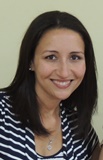|
As Brinks Lockwood (2014) noted, "flipped learning occurs
when students are exposed to the instruction outside of the classroom and when
class time is used as a means to apply that newly found outside knowledge
through activities" (p. 1). In our field of TESOL, this approach has been
steadily gaining popularity. At the 2014 TESOL convention in Portland, for
instance, seven presentations and one showcase focused on using a flipped
approach to teach English language learners, and there were even more
presentations at the 2015 convention in Toronto. Nevertheless, few pedagogical
materials exist as examples of the approach for teaching English, particularly
to learners who are studying English for academic purposes. Our presentation at
Massachusetts TESOL (MATSOL) last year aimed to fill this gap and provide
attendees with materials they could use to flip their classes.
The benefits of flipping the classroom are unique to each
classroom situation depending on how much of the classroom is
"flipped" and how well the tasks are designed. Nonetheless, we have
identified three salient benefits of this approach as we began incorporating it
into our academic English courses. We have noticed increased engagement in
class work and homework (Bergmann, Overmyer, & Wilie, 2013; Brinks
Lockwood, 2014), learners’ autonomy (Bergmann, Overmyer, & Wilie, 2013),
and opportunities for meaningful language production (Brinks Lockwood, 2014). In
our presentation at TESOL 2016, we will explain
the pedagogical materials we have developed and trialed for advanced undergraduate
and graduate learners of English. Our target population focuses on students who
intend to matriculate to an English-medium college or university; however,
these materials can also be adapted to other language proficiency levels. Please
join us at the “Best of Affiliates” presentation on 8 April at 10:30 am in room
Douglass at the Baltimore Convention Center. We look forward to talking with
you about the flipped approach.
References
Bergmann, J., Overmyer, J., & Wilie, B. (2013). The flipped
class: Myth vs. reality. The Daily Riff. Retrieved from http://www.thedailyriff.com/articles/the-flipped-class-conversation-689.php
Brinks Lockwood, R. (2014). Flip it! Strategies for the ESL
classroom. Ann Arbor, MI: University of Michigan Press.

Ilka Kostka, PhD, is an assistant teaching professor in the Global
Pathways and American Classroom programs at Northeastern University in Boston,
Massachusetts, USA. She teaches ESL courses in reading and writing and
contributes to curriculum development. She is currently the newsletter editor of SLW News.
Erik
Voss, PhD, is an assistant teaching professor in the Global Pathways and
American  Classroom programs at Northeastern University in Boston,
Massachusetts, USA. He specializes in teaching courses in academic listening
and professional speaking. Dr. Voss’s research focuses on second language
assessment and learning through technology. Classroom programs at Northeastern University in Boston,
Massachusetts, USA. He specializes in teaching courses in academic listening
and professional speaking. Dr. Voss’s research focuses on second language
assessment and learning through technology.
|

